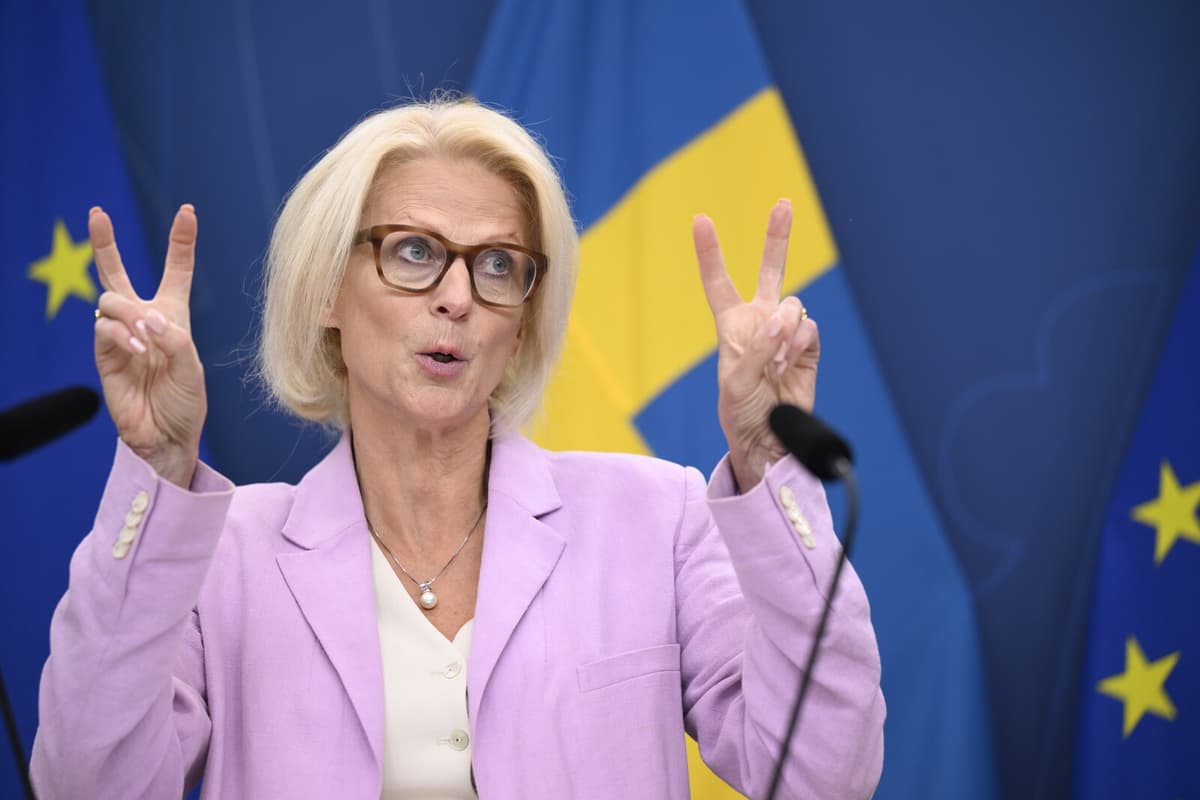The government has previously announced that there may be tax cuts, including possibly a reduction in corporate tax and tax on electricity. For the Minister of Finance, money for families and households takes precedence over reduced corporate tax, when the judiciary and defense have received their share.
Their turn now
– Hardworking people should see that it's their turn now, that's the most important thing now, says Svantesson to TT after a press conference on the economic situation.
The fact that households are holding back on consumption is the main reason why the Swedish economy has not recovered from the recession, according to the Ministry of Finance. Donald Trump's tariffs have made people worried and made them hold on to their wallets, is the assessment.
Elisabeth Svantesson describes the recession as "prolonged and slow".
We still make the assessment that the recovery will resume at the end of the year and especially next year, she says at a press conference.
In a new forecast ahead of the autumn budget negotiations, Sweden's GDP is expected to land at 3.0 percent next year, up from 2.6 percent in the June forecast. For 2025, the forecast from June is a growth of 0.9 percent.
"Get the economy going"
To get the economy going, an expansive budget is needed, according to Svantesson.
We will not present a restrictive budget. That would be one of the worst things to do in this situation, to be too restrictive. We need to get the economy going and give households a boost, she says.
The budget for 2026, which will be presented on September 22, will be negotiated between the four Tidö parties. Svantesson describes the negotiations as "tough".
She repeats that The Moderate Party's focus is on strengthening households in various ways, without specifying how.
Unemployment is a concern
The government says that unemployment will decrease from 8.7 percent this year to 8.3 percent next year. In the previous forecast, unemployment was expected to be 8.4 percent in 2026.
Elisabeth Svantesson describes unemployment as a concern.
It was high when we took office, it is still high and slightly higher.
It's something to take seriously, in the short term it's about doing what we can to get the economy going, she says.






